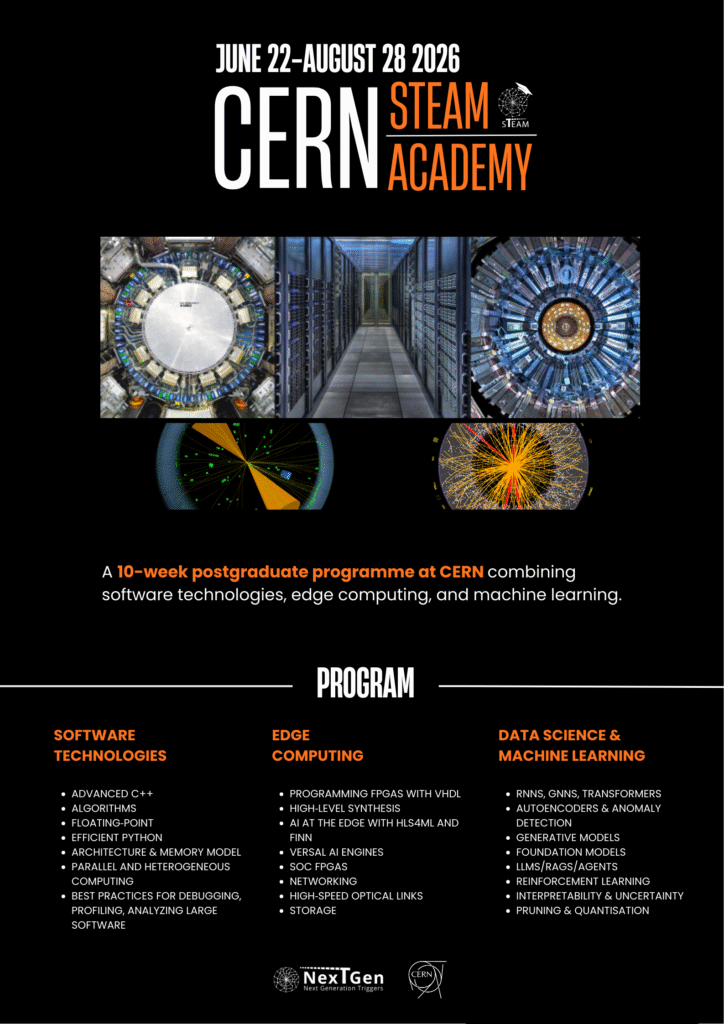Applications Open for the CERN STEAM Academy 2026!

Applications are now open for the CERN STEAM Academy 2026, a 10-week intensive summer programme taking place at CERN, Geneva, from 22 June to 28 August 2026.
The CERN STEAM Academy is designed for PhD candidates, postdoctoral researchers, and engineers who want to deepen their expertise in modern computing and data-driven technologies. The programme brings together Software Technologies, Edge Computing, and Data Science & Machine Learning in a single, integrated curriculum tailored to future challenges in large-scale scientific and industrial computing.
Participants will follow a rigorous programme combining advanced lectures, hands-on labs, and real-world case studies, all delivered by internationally recognised experts from academia, research, and industry. The Academy provides a unique opportunity to work with cutting-edge technologies such as advanced C++, heterogeneous and parallel computing, FPGAs and AI at the edge, and state-of-the-art machine learning models and MLOps workflows.
Beyond technical training, the CERN STEAM Academy offers a truly international and highly diverse learning environment, fostering collaboration across disciplines and backgrounds. All participants follow the full 10-week programme together, building a strong cohort experience at the heart of the world’s leading particle physics laboratory.
Who can apply?
The programme is open to:
- PhD candidates
- Postdoctoral researchers
- Researchers and engineers with a completed Master’s degree
The Academy is conducted entirely in English, and selection is based on technical preparation and motivation. Prior experience in high-energy physics is not required.
What’s included?
- On-site accommodation and meals for the full 10 weeks (for external participants)
- Access to advanced computing and FPGA hardware
- Teaching materials, seminar recordings, and shared code repositories
- Optional post-Academy placement with a CERN group
Key dates
- Applications close: 28 February 2026
- Selection results: by 31 March 2026
- Academy dates: 22 June – 28 August 2026
The CERN STEAM Academy is supported by the Next Generation Triggers (NGT) project, advancing innovation in real-time computing and data processing for future scientific challenges.
👉 Ready to take your skills to the next level?
Apply now and join the CERN STEAM Academy 2026.
Questions? Contact us at steam.academy@cern.ch